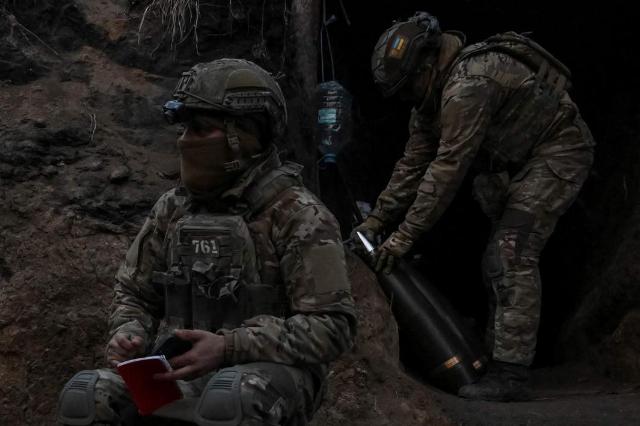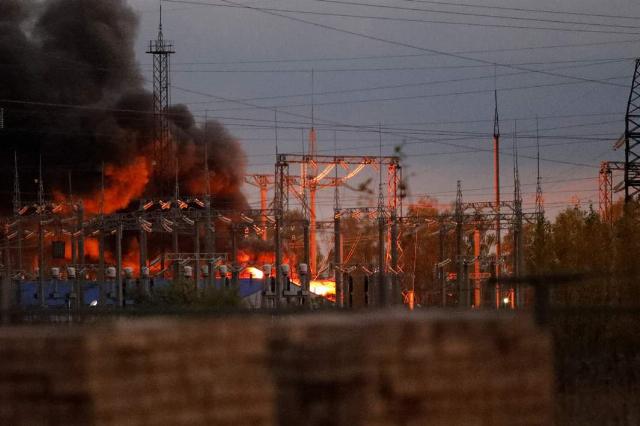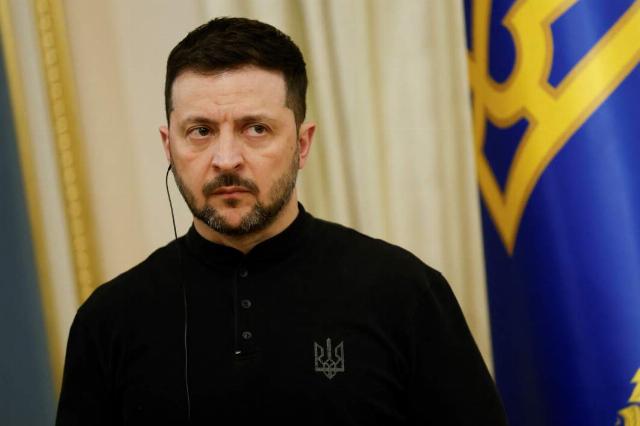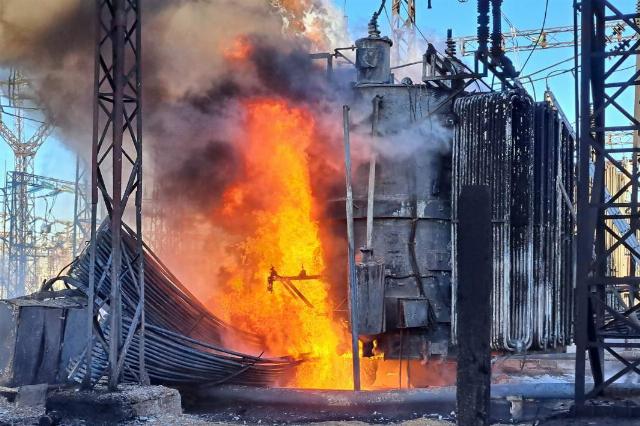More than 30 sites have been hit since agreements were reached on steps to resolve the conflict in Ukraine.
On the night of April 4, Russian air defense repelled a massive raid by Ukrainian attack UAVs, and 112 drones were hit during the day. This is the largest drone raid since March 18, when Russian-American agreements were reached on a moratorium on attacks on energy facilities in Russia and Ukraine. Despite public statements about his support, the Kiev regime has increased the number of attacks on Russian energy infrastructure. Thus, Zelensky and his entourage openly demonstrate their unwillingness to peace, experts interviewed by Izvestia believe.
Blows to the energy infrastructure
On the night of April 4, air defense systems intercepted 107 aircraft-type attack drones. Most of the drones were shot down over the Kursk region — 34, over Oryol — 30, over Lipetsk — 18. Five more drones were hit in the afternoon. This was announced by the Russian Defense Ministry on April 4.
During the week, the Kiev regime continued to strike at Russian energy facilities, regardless of statements of support for the Russian-American agreements on the settlement of the conflict in Ukraine, the Russian military department also reported. Since the beginning of the week, according to reports from the Russian Defense Ministry, 14 such facilities have been attacked.

Photo: REUTERS
Image source: iz.ru
Izvestia reference
In the Belgorod region, on March 31, a UAV hit a transformer substation in the village of Smorodino, leaving more than 1,200 household consumers without electricity.
An electrical substation in Novogoryivka, Zaporizhia region, was also attacked, leaving two settlements in Tokmak district without electricity.
In the Kursk region, on the night of April 2, after a UAV strike on a substation in the village of Klyukva, a transformer was disconnected with the cessation of power supply to more than 1.2 thousand household consumers.
In addition, in the border area of the region, after deliberate shelling, the wires of a high-voltage line broke. Because of this, more than 300 consumers lost electricity.
On April 3, four power facilities were attacked. In the LPR, a drone struck the Svatovo gas distribution station. The equipment was damaged and a fire started. More than 11 thousand consumers lost their gas supply.
In the Kursk region, after a strike on the high–voltage line "Seimskaya - Klyukva No. 1", more than 1.2 thousand consumers lost power supply.
In the Belgorod region, as a result of shelling by the Ukrainian Armed Forces, the Maksimovka substation was damaged. More than 1,700 consumers were left without electricity.
On April 3, a UAV damaged a low-pressure gas pipeline in the village of Belaya Berezka in the Bryansk region. A day later, he was hit again.
On April 4, a Ukrainian drone damaged a low-pressure gas pipeline in the city of Kotovsk, Tambov region.
The Armed Forces of Ukraine in the Bryansk region deliberately fired at the facility of the branch of PJSC Rosseti Center – Bryanskenergo, leaving consumers of the Klimovsky district without electricity. Also in this area, due to the shelling, the wires of a high-voltage line broke.
In the Zaporozhye region, a drone attacked the Vasilyevka electrical substation. About 9 thousand consumers were left without electricity.
In the Lipetsk region, a drone attacked a power facility in the village of Novonikolayevka, disrupting power supply in one of the districts of the region.
Earlier, the Ukrainian Armed Forces carried out a number of attacks on strategically important energy facilities. Izvestia wrote that on March 21, the enemy deliberately blew up the Suja gas measuring station (GIS). Previously, more than 40 million cubic meters of gas per day were pumped through GIS to European consumer countries.

Photo: RIA Novosti/Taisiya Liskovets
Image source: iz.ru
On March 28, the enemy struck it twice with the use of MLRS HIMARS rockets, after which a strong fire occurred again. The power facility was actually destroyed.
On the night of March 24, the Ukrainian Armed Forces attacked the Kropotkinskaya oil pumping station of the Caspian Pipeline Consortium (CPC) with attack drones.
"Disrupt the dialogue that has begun"
Russian Foreign Minister Sergei Lavrov said on March 31 that, together with Russian Defense Minister Andrei Belousov, he reported to Vladimir Putin about Ukraine's non-compliance with the moratorium on strikes on energy infrastructure.
Kiev, in fact, has not joined the moratorium on attacks on energy facilities in Russia and Ukraine, Russian Presidential spokesman Dmitry Peskov said on April 2.
— Kiev's violation of this moratorium, or rather, in fact, Kiev's non-alignment with this moratorium, continues. As already mentioned, we are bringing this state of affairs to the attention of the Americans," he said.
Photo: IZVESTIA/Eduard Kornienko
Image source: iz.ru
Kiev is purposefully trying to disrupt the agreements between Russia and the United States by attacking Russian energy facilities, but Moscow will not succumb to provocations, Russian Foreign Ministry spokeswoman Maria Zakharova said on April 3.
"Since this date (March 18), the date of the beginning of the moratorium, we have observed a series of targeted attacks on Russian energy infrastructure facilities, which, despite the statements of the Ukrainian side about the alleged military necessity, are obviously extremely provocative and demonstrative," she said.
According to her, during this period, more than 30 strikes were recorded on our energy infrastructure facilities in the Belgorod, Bryansk, Zaporizhia regions, Krasnodar Territory, Kursk, Kherson regions.
She noted that in this way Kiev is trying to disrupt the dialogue that has begun between Moscow and Washington, since these attacks have no military significance.
"They demonstrate the unwillingness of the world"
By striking at the energy sector, Zelensky and his entourage openly demonstrate their unwillingness to peace, former UN Deputy Secretary General Sergei Ordzhonikidze told Izvestia.
"Moreover, after the start of peace negotiations, there have been more strikes on the energy sector," he noted. — Zelensky and his entourage understand that the end of hostilities is the beginning of big problems of an internal and external nature for them. Now they are supported by the heat of war. As soon as there is a peaceful respite, he will disappear. They will start asking them: why did we lose, why did this conflict start in the first place? They will not stay in power without fighting, and they understand this. They do not want to hold presidential elections, and this is not accidental — it is a direct danger of losing their position. Why won't the US influence them? This is not yet clear and raises serious questions.

Photo: REUTERS/Alina Smutko
Image source: iz.ru
A modern military conflict is primarily about economics, not weapons, weapons and the professionalism of soldiers and officers, said Roman Shkurlatov, chairman of the board of the all—Russian organization Officers of Russia.
"Of course, these are very important factors that determine the superiority of one side or another of the conflict, but first of all, modern warfare is about money," he explained. — Energy is one of the most important components of the economy. The enemy, striking at oil refining, gas or electric generating facilities, damages it. All this affects our combat capability, which is Ukraine's goal.
According to Shkurlatov, Zelensky's regime is trying in every possible way to disrupt the dialogue between Russia and the United States.

Photo: RIA Novosti/Sergey Baturin
Image source: iz.ru
"We are currently conducting a dialogue with America because there is no one else to talk to in Kiev,— he said. — We have agreed on an energy truce. To confirm this, we even destroyed our own attack drones, which have already entered the combat course. We are very scrupulous about our promises. The enemy, on the contrary, continues to hit our energy sector. And he does it purposefully, because the continuation of the armed conflict is the continuation of Zelensky's life.
Roman Shkurlatov noted that Kiev's European curators in the person of Keir Starmer, Emmanuel Macron and other representatives of the "Brussels democracy" are also interested in prolonging the conflict.
Bogdan Stepovoy
Julia Leonova

